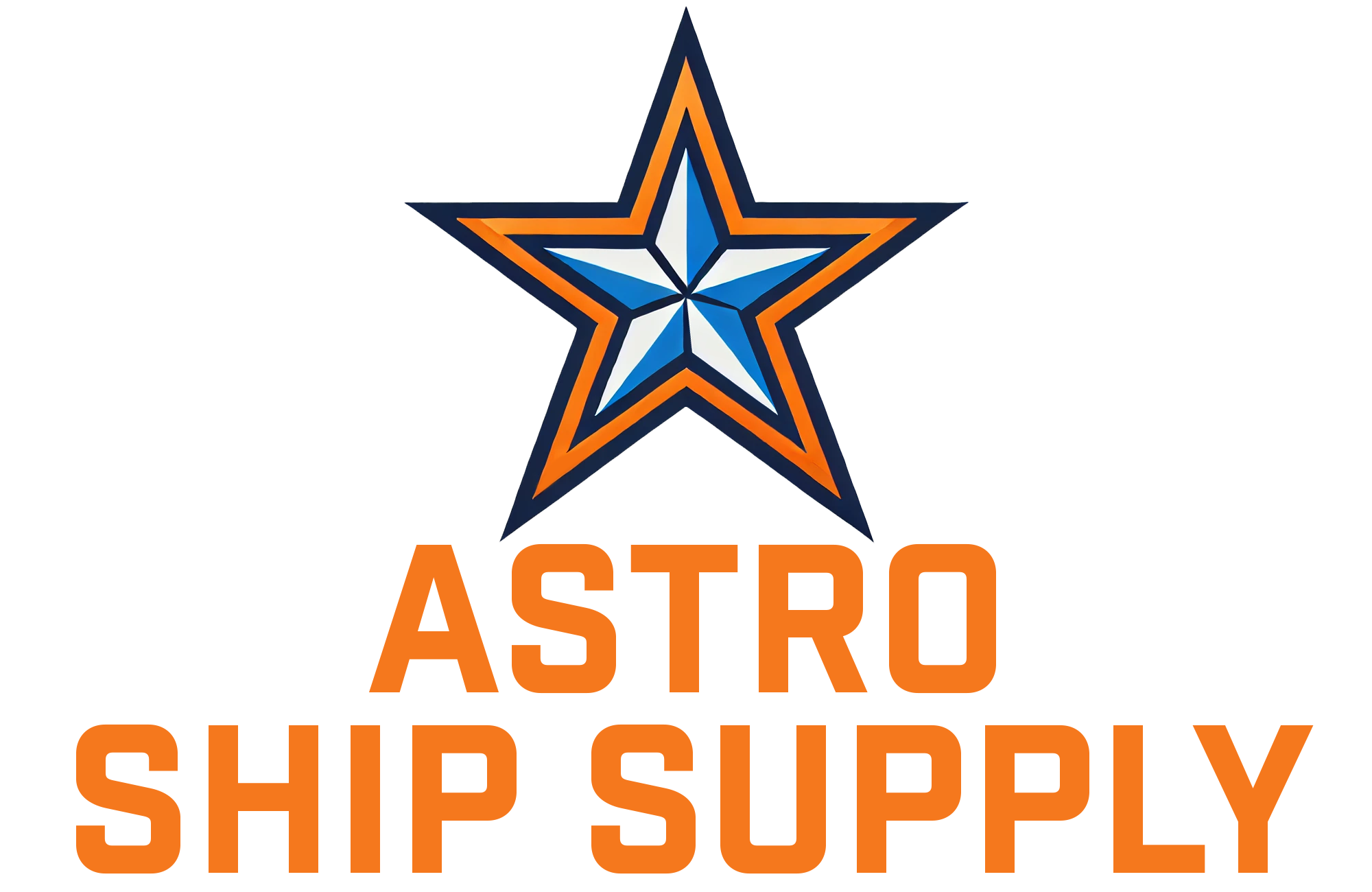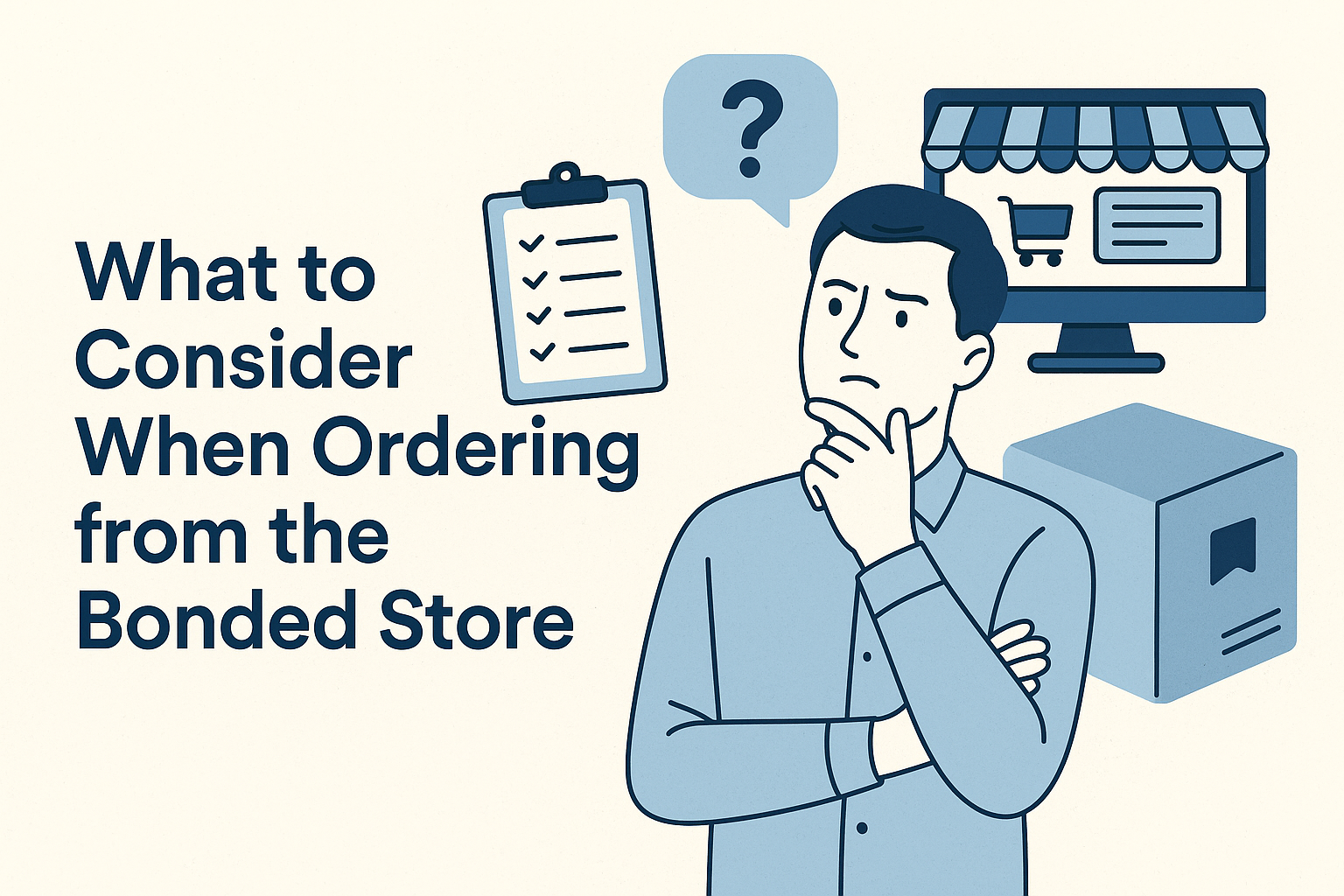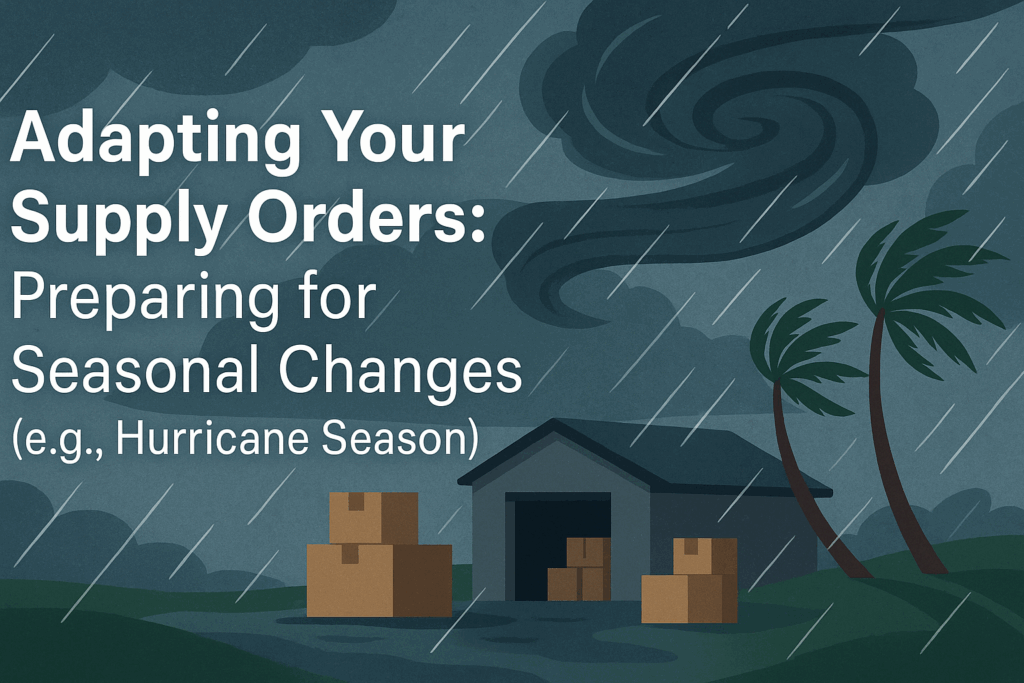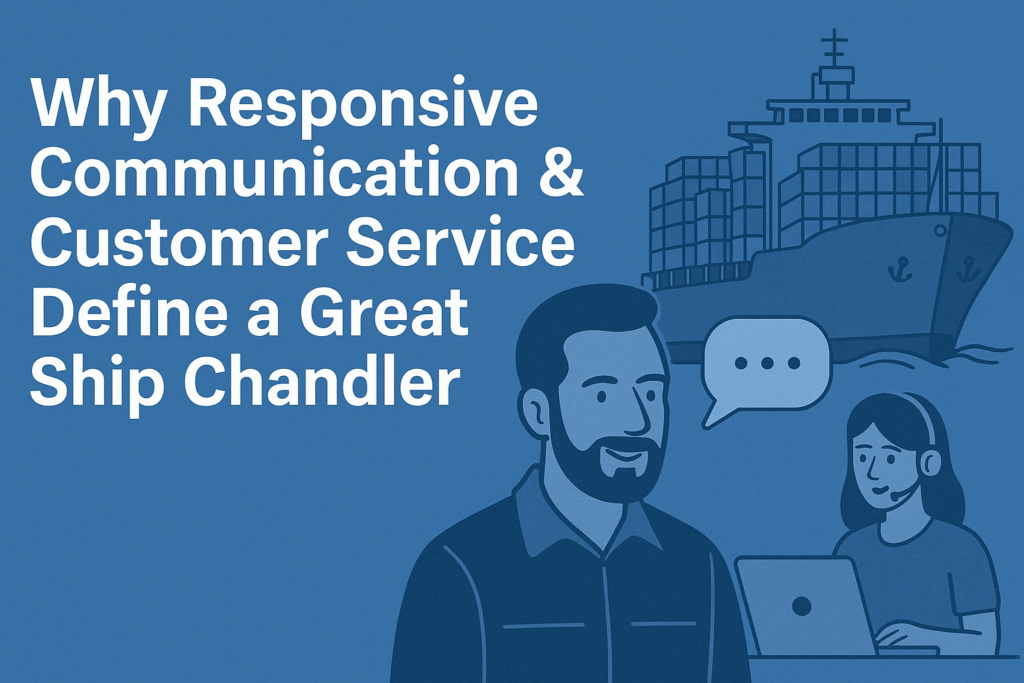Navigating the Nuances of Bonded Store Supplies
For any vessel traversing international waters or docking in foreign ports, the bonded store is more than just a convenience; it’s a vital component of crew welfare and operational efficiency. These aren’t your average supplies. Ordering from the bonded store involves navigating a specific set of rules, regulations, and considerations distinct from general provisions or technical equipment procurement. Getting it right ensures a happy crew, compliance with maritime law, and avoidance of costly delays or penalties. Getting it wrong? That can lead to confiscated goods, fines, and unnecessary headaches.
As seasoned professionals in ship supply, particularly serving the bustling Port of Houston and the wider Gulf Coast region, we’ve seen firsthand how crucial meticulous planning is when it comes to bonded goods. This guide dives deep into everything you need to consider, transforming potential challenges into a streamlined process for your vessel.
What Exactly is a Ship’s Bonded Store?
Think of the bonded store as a ship’s onboard duty-free shop, but with a critical difference: it operates under strict customs regulations. These stores hold goods like tobacco products, alcoholic beverages, confectionery, perfumes, and sometimes electronics, which are exempt from customs duties and taxes as long as they remain under customs bond. This means they are intended for consumption or use outside the territorial waters of the country where they were purchased or while the vessel is in international transit.
The “bonded” status signifies that duties have not yet been paid, and the goods are tracked and controlled by customs authorities until the vessel departs territorial limits or the goods are otherwise legally accounted for.
Why Prioritize Bonded Store Orders? The Core Benefits
Ordering from the bonded store isn’t just about saving money on taxes, although that’s a significant advantage. It directly impacts several key areas of vessel management:
- Crew Morale and Welfare: Access to familiar comforts like specific brands of cigarettes or preferred beverages can significantly boost crew morale, especially during long voyages. It’s a small luxury that makes a big difference in maintaining a positive onboard environment.
- Cost Efficiency: The exemption from duties and taxes translates into substantial savings compared to purchasing similar items ashore in many ports.
- Convenience: Consolidating these specific needs through your ship chandler alongside provisions and technical supplies simplifies procurement and logistics. A reliable supplier like Astro Ship Supply ensures these items are delivered securely and efficiently with your other orders.
- Regulatory Compliance (When Done Right): Properly managed bonded stores demonstrate adherence to customs regulations, contributing to the vessel’s overall compliance profile.
Key Considerations Before Placing Your Bonded Store Order
Successfully procuring bonded goods requires careful attention to detail across several domains. Overlooking any of these can lead to complications.
1. Understanding and Adhering to Regulations (The Non-Negotiable)
This is paramount. Bonded stores are heavily regulated, and rules vary significantly between countries, ports, and even specific terminals.
H4: Customs Rules and Allowances
Every port authority and national customs agency has specific limits on the quantity and types of bonded goods (especially alcohol and tobacco) that can be held onboard, delivered, or remain sealed while in their territorial waters. Exceeding these limits can result in seizure and fines.
- Research Port-Specific Rules: Before arrival, verify the exact allowances for the upcoming port(s) of call. Don’t assume rules are the same everywhere.
- Declaration Accuracy: All bonded items must be accurately declared on the ship’s stores list submitted to customs. Discrepancies are red flags.
- Sealing Requirements: Many authorities require bonded stores to be sealed while the vessel is in port or territorial waters. Understand the procedures for sealing and unsealing.
H4: International Codes (ISPS)
While the International Ship and Port Facility Security (ISPS) Code primarily concerns security threats, its principles extend to the secure handling and delivery of all ship supplies, including bonded goods. Your supplier must comply with port security procedures for access and delivery, ensuring items aren’t tampered with and are delivered to authorized personnel only. Choosing a supplier demonstrating ISPS Code compliance offers peace of mind.
2. Gauging Crew Needs and Preferences
While regulations dictate the limits, crew preferences determine the actual order list. A well-stocked bonded store reflects an understanding of the crew’s desires.
- Demographics Matter: Consider the nationalities and cultural backgrounds of your crew. Preferences for cigarette brands, types of spirits, beers, or even specific snacks can vary widely.
- Rotation and Voyage Length: Factor in the duration of the upcoming voyage and crew rotation schedules to estimate consumption rates accurately. Avoid significant overstocking or running out mid-journey.
- Feedback Mechanisms: Implement a simple system for crew members to request specific bonded items they’d appreciate, within reasonable limits.
3. Supplier Selection: Reliability is Key
Your choice of ship chandler significantly impacts the success of your bonded store order. Look beyond just price.
H4: Verifying Supplier Credentials and Compliance
A reputable supplier operates transparently and adheres to all regulations.
- Licensing: Ensure the chandler holds the necessary licenses to handle and supply bonded goods.
- Compliance Record: Do they have a history of smooth customs clearance? Can they demonstrate knowledge of varying port regulations?
- Quality Assurance: While less critical for packaged goods than provisions, certifications like ISO 9001:2015 indicate a commitment to quality management systems across their operations, which often translates to better service reliability.
- Secure Supply Chain: How do they ensure the integrity of goods from their warehouse to your vessel? This ties back to ISPS compliance.
H4: Inventory and Availability
Popular bonded items can sometimes face stock limitations. Confirm availability with your supplier well in advance, especially for specific brands or large quantities. Discuss lead times needed for procurement if items aren’t readily stocked.
4. Logistics and Delivery Coordination
Timing and coordination are crucial for receiving bonded goods without hassle.
- Delivery Windows: Coordinate closely with the supplier and port agent regarding the vessel’s ETA and ETD to establish a feasible delivery window.
- Port Access: Ensure the supplier has the necessary permits and arrangements for port access and delivery alongside.
- Receiving Procedures: Designate responsible crew members to receive, verify, and securely store the bonded items immediately upon delivery. Check quantities and seals against the delivery note and declaration.
- Contingency Planning: What happens if the vessel’s schedule changes? Discuss contingency plans with your supplier regarding delivery adjustments.
5. Budgeting and Cost Management
While duty-free saves money, bonded goods still represent an expense. Effective management is important.
- Compare Pricing (Apples to Apples): When comparing suppliers, ensure quotes are comprehensive and include any delivery or service fees.
- Balance Cost and Quality/Preference: Sometimes paying slightly more for preferred brands significantly impacts crew morale more than minimal savings on less desired items.
- Track Consumption: Monitor usage patterns to refine future orders and avoid waste or unnecessary inventory buildup.
6. Documentation and Record Keeping
Meticulous paperwork is non-negotiable for customs compliance.
- Accurate Requisitions: Ensure your initial order list is precise.
- Delivery Notes & Invoices: Verify these match the goods received exactly.
- Customs Declarations: Double-check the ship’s stores declaration lists all bonded items correctly before submission to authorities.
- Onboard Logs: Maintain an accurate log of bonded store issues to crew members, if applicable under company policy and regulations.
Common Pitfalls to Avoid When Ordering Bonded Goods
Learning from common mistakes can save significant trouble:
- Ignoring Port-Specific Limits: Assuming the allowance is the same as the last port is a frequent error leading to confiscation. Always verify for the current port.
- Inaccurate Declarations: Minor errors or omissions can cause major delays or fines during customs inspections.
- Choosing the Cheapest, Not the Most Reliable Supplier: A low price might be tempting, but delays, incorrect items, or compliance issues resulting from an unreliable supplier cost far more in the long run.
- Poor Inventory Management: Carrying excessive stock ties up funds and increases risk if regulations change or consumption is lower than expected. Running out impacts morale.
- Last-Minute Orders: Rushing orders increases the risk of errors and may limit supplier availability. Plan ahead whenever possible.
Scenario: MV Navigator’s Smooth Bonded Store Replenishment
Consider the MV Navigator, a bulk carrier heading to the Port of Houston. Two weeks out, the Chief Steward reviews the bonded store inventory and collects crew requests. Knowing Houston’s specific customs limits (researched via their agent), they compile a detailed order list focusing on preferred American and European cigarette brands, specific spirits, and popular beers, staying comfortably within allowances.
They send the requisition to Astro Ship Supply, their trusted chandler known for reliability and Houston expertise. Astro confirms stock availability and clarifies a question about a specific whisky brand, suggesting a comparable alternative if the first choice isn’t available. They coordinate the delivery window with the ship’s agent, ensuring compliance with terminal security and customs notification requirements.
Upon arrival, Astro’s truck arrives during the agreed timeframe. The delivery personnel are cleared through security efficiently (thanks to Astro’s ISPS compliance). The Chief Steward and a witness verify the sealed cartons against the delivery note, finding everything correct. The items are immediately transferred to the ship’s secure bonded locker, and the delivery note is signed. The ship’s stores declaration, prepared in advance, accurately reflects the received items. The entire process is smooth, compliant, and the crew appreciates access to their requested items for the next leg of their voyage.
This scenario highlights the value of pre-planning, clear communication, regulatory awareness, and partnering with a reliable, compliant supplier.
Checklist: Ordering Bonded Stores Effectively
- Verify Current Port Regulations: Check specific allowances and procedures for your port of call.
- Assess Crew Needs: Understand preferences and consumption rates.
- Choose a Reliable Supplier: Prioritize compliance, reputation, and service (request a quote from Astro Ship Supply).
- Confirm Stock & Lead Times: Place orders well in advance.
- Coordinate Delivery Logistics: Align with supplier and agent for smooth receipt.
- Ensure Accurate Documentation: Maintain precise records for customs.
- Implement Secure Receiving Procedures: Verify quantity and integrity upon delivery.
- Manage Inventory Wisely: Avoid overstocking or shortages.
Partnering for Success
Ordering from the bonded store requires more diligence than routine provisioning, but it’s a manageable process with the right approach and partners. Understanding regulations, crew needs, and the importance of supplier reliability forms the foundation of successful bonded store management. By paying close attention to these details, you ensure compliance, support crew welfare, and contribute to the smooth operation of your vessel.
Choosing a ship chandler experienced in navigating the complexities of bonded supply, especially in demanding regions like the US Gulf Coast, is a critical step. A partner committed to quality, compliance (including ISO, HACCP, ISPS, and US Customs standards), and timely delivery makes all the difference.
Frequently Asked Questions (FAQ) About Bonded Stores
What are bonded stores on a ship?
Bonded stores refer to goods such as tobacco, alcohol, confectionery, and perfumes sold onboard ships without the levy of customs duties or taxes. These items are kept under customs control (“bond”) and are intended for consumption or use outside the territorial jurisdiction where purchased or while in international waters.
Why are goods in the bonded store duty-free?
Goods are duty-free because they are considered to be outside the customs territory while kept under bond on the vessel. Duties and taxes become payable only if the goods are brought ashore or consumed within territorial waters in violation of local regulations. The exemption supports maritime commerce and crew welfare on international voyages.
Are there limits on how much bonded stock a ship can carry?
Yes, absolutely. Customs authorities in nearly every country impose strict limits on the quantity of bonded goods (especially alcohol and tobacco) that can be held onboard while a vessel is in their port or territorial waters. These limits vary significantly by location and must be strictly adhered to. Ordering and declaring quantities accurately is crucial for compliance.
How do I ensure compliance when ordering bonded goods?
Compliance involves several steps: 1. Research and understand the specific customs regulations and quantity limits for your port(s) of call. 2. Choose a reputable, licensed ship chandler experienced in bonded supply, like Astro Ship Supply. 3. Place accurate orders reflecting actual needs within legal limits. 4. Ensure all bonded items are declared correctly on the ship’s stores list for customs. 5. Follow procedures for sealing stores if required in port. 6. Maintain accurate records of delivery and distribution (if any).
What’s the difference between bonded stores and regular provisions?
Regular provisions (food, water, cleaning supplies) are essential consumables for the vessel’s operation and crew sustenance, generally subject to standard import/export rules but not the same level of strict “bonded” customs control regarding duty-free status. Bonded stores are specifically designated duty-free luxury or comfort items (alcohol, tobacco, etc.) managed under tighter customs surveillance due to their tax-exempt status, with strict rules about where and when they can be accessed or consumed.






